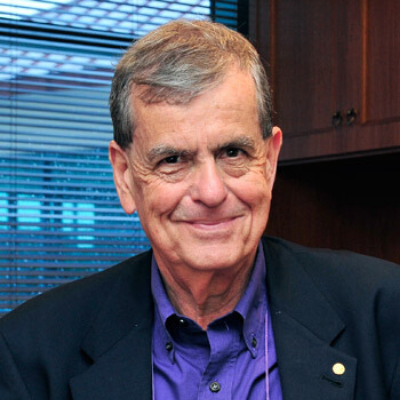Global S&T Development Trend Analysis Platform of Resources and Environment
| Academy hosts conversation with Israeli Nobel Laureate | |
| admin | |
| 2020-07-21 | |
| 发布年 | 2020 |
| 语种 | 英语 |
| 国家 | 澳大利亚 |
| 领域 | 资源环境 |
| 正文(英文) |
There’s no way to rush a COVID-19 vaccine, according to Nobel Laureate Professor Aaron Ciechanover. “In the end we shall develop [a vaccine]. There is no doubt about it, but the way, it’s very long and we have to test every step and make sure before we move to the next one, because lives of people are at stake.” 
Professor Ciechanover made the comments in a recent Academy webinar, held in partnership with Technion Australia and the Embassy of Israel Canberra. The webinar was held to celebrate Australia and Israel’s bilateral science, research and innovation relationship, which is underpinned by the Australia–Israel Agreement on Bilateral Cooperation in Technological Innovation and Research and Development that was announced in 2017 and came into force in 2018. In conversation with Academy Chief Executive Anna-Maria Arabia, Professor Ciechanover discussed the future of medicine and cancer research, Israel’s unique entrepreneurial ecosystem, and his own personal journey to winning a Nobel Prize. In 2004, Professor Ciechanover, together with Professor Avram Hershko and Professor Irwin Rose, received the Nobel Prize in Chemistry for their discovery of the ubiquitin protein. The treatment of cancers and degenerative diseases was transformed by the discovery of how ubiquitin removes unwanted proteins. “It started with a laboratory in Israel, in some vague idea. It now has become a huge stream of knowledge, pharmaceutical company scientists work on it all over the world. [Did] we know it? No, of course not at the beginning, you’re busy with your problem. We knew that what we are finding is novel, but we didn't know that it’s important.” Asked what he thought posed the greatest danger to the future of medicine, he replied: “Climate change. Forget about medicine, [climate change] hasn’t taken a sabbatical during the pandemic. And if we are not going to think about it seriously and globally, we are going to destroy this planet in no time. We don’t notice it because we say, ‘It’s not my business. My children will take care of it’, but it’s coming and it’s accelerating. We should take it extremely, extremely seriously in medicine.” He also spoke about personalised medicine and how it will change disease treatment. “Medicine of today, with all its advantages, what I call ‘one size fits all’. It's a pyjama way of treatment … something that we buy in order to warm ourselves up. When we buy, we don’t care much about the size. When the patient comes with a cancer, either we can operate on it, or we bombard the patient with chemotherapy and radiotherapy. That goes well beyond the tissue itself [with] side effects: balding, vomiting, the bone marrow suppression. You’re shooting a fly with a cannon … And what’s happened is that we’ve now started to identify the needle that we can use to punch this fly, and the needle is called our DNA.” The webinar was opened by Ambassador Mark Sofer of the Embassy of Israel Canberra, and Ori Danieli of Technion Australia. |
| URL | 查看原文 |
| 来源平台 | Australian Academy of Science |
| 文献类型 | 新闻 |
| 条目标识符 | http://119.78.100.173/C666/handle/2XK7JSWQ/284607 |
| 专题 | 资源环境科学 |
| 推荐引用方式 GB/T 7714 | admin. Academy hosts conversation with Israeli Nobel Laureate. 2020. |
| 条目包含的文件 | 条目无相关文件。 | |||||
| 个性服务 |
| 推荐该条目 |
| 保存到收藏夹 |
| 查看访问统计 |
| 导出为Endnote文件 |
| 谷歌学术 |
| 谷歌学术中相似的文章 |
| [admin]的文章 |
| 百度学术 |
| 百度学术中相似的文章 |
| [admin]的文章 |
| 必应学术 |
| 必应学术中相似的文章 |
| [admin]的文章 |
| 相关权益政策 |
| 暂无数据 |
| 收藏/分享 |
除非特别说明,本系统中所有内容都受版权保护,并保留所有权利。
修改评论